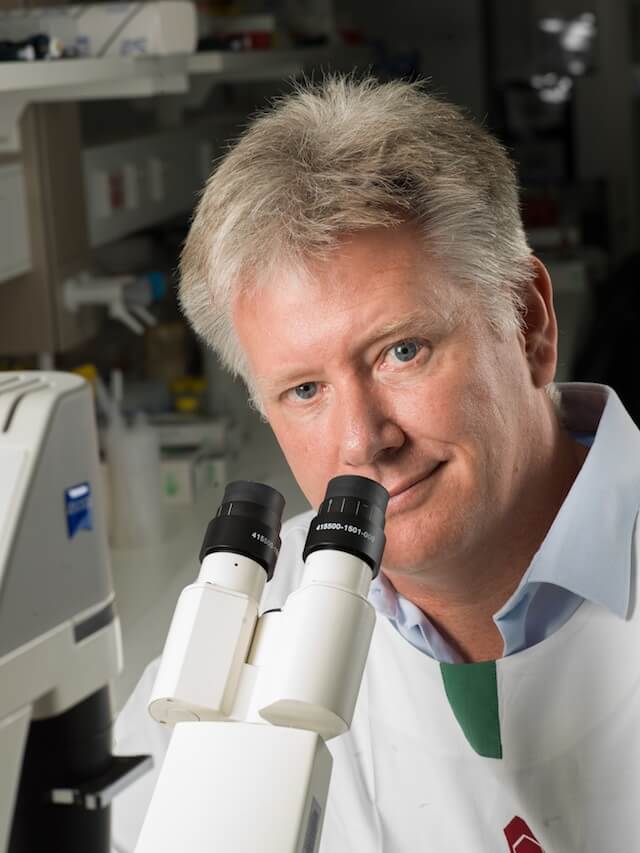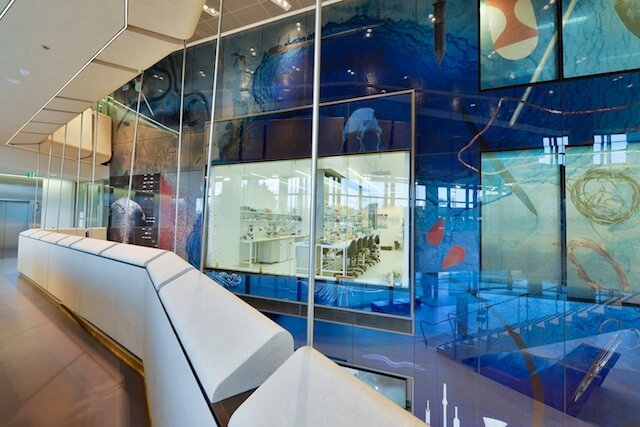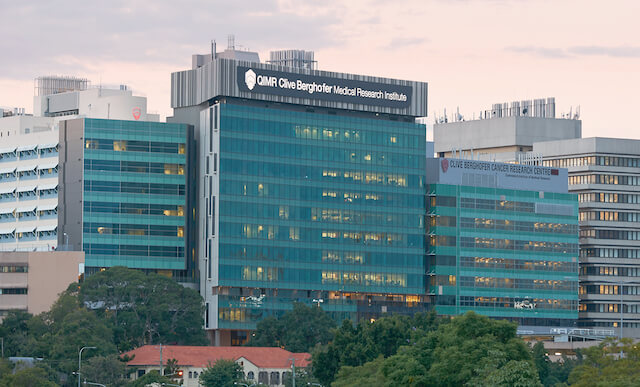With intuitive infrastructure, flexible venues, and unrivaled leisure and business offerings, Brisbane is the ideal location for your next conference.
Brisbane’s aptitude for attracting and encouraging innovation, industry leadership, and emerging talent presents a unique chance for event organizers to access world-class thought leaders who can enrich a conference experience with their expert knowledge, global networks, and on-the-ground support. Take the field of medicine — and Mark Smyth — for example.

It was Mark Smyth’s passion for golf that led to his groundbreaking research concerning immune-system reaction to cancer, and how to manipulate it in order to fight the disease.
An immunology, cancer, and infection professor at QIMR Berghofer Medical Research Institute in Brisbane, Australia, Smyth was originally on track to become a medical doctor, but after being distracted playing golf instead of studying, he didn’t get the marks he needed for medical school, and so he embarked on a career in science instead.
Professor and senior scientist at QIMR Berghofer Medical Research Institute Mark Smyth believes Brisbane is on its way to being a “super hub for doing medical research.”

QIMR Berghofer is a world-leading medical research institute focusing on cancer, infectious diseases, mental health, and chronic disorders.
This would be an important career move for Smyth, leading him to study the immune system’s reaction to cancer for more than two decades, and resulting in new and sophisticated immunotherapy treatments today.
“The work that I did with a very longstanding colleague, Robert Schreiber, in the U.S. in the early 2000s has set the foundation to understanding that the immune reaction to cancer is a very real thing,” Smyth said.
Based on his research, other scientists have been able to develop successful immune therapies that have contributed to a greatly improved survival rate for a wide range of different cancers.
“What we learned that was critical from the early ‘90s until recently, is that the immune system regulates itself,” Smyth said. This discovery has led to antibody therapies targeting certain molecules in the immune system called “immune checkpoints.” “Thankfully for us in the immunotherapy area, they have become the absolute prototype to successful therapy.”
What does this mean for cancer sufferers? A greater rate of survival, or a longer life expectancy. “We have gone from people who have stage-four melanoma, for example, having no hope or a maximum of 12 months left to live,” Smyth said, “to using antibody immunotherapy in treatment, and now we know there is a 20-to-30-percent survival rate and a longer and better quality of life for those who do eventually succumb to the disease.”
It’s been the recent success of relatively new immune system therapies that’s thrust Smyth’s early work in immunotherapy into the spotlight. “It is the immune checkpoint antibodies being developed now, that have been built on our early work,” he said, “that are saving lives, and not just in melanoma, they are being used in 20 different cancers.”
In fact, immunotherapy is now known as the “fourth pillar” of cancer treatment after early detection and surgery, radiotherapy, and chemotherapy. And Smyth is now looking at ways all of the pillars can work together to fight cancer. “We think there are some fantastic possibilities to potentially combine these things,” he said. “So you might be able to get rid of the bulk of the disease with one of those first three pillars, and then immunotherapy can be used to clean up the minimal residual disease.”
Building on his earlier work, Smyth is now working to develop his own immunotherapies and has a number of specific projects in the initial development phase. Longer term, he wants to work on therapies for groups of patients who don’t respond to immunotherapies, because they don’t have enough of the right cells in their tumors. These include people with pancreatic or prostate cancer.
“Ultimately, we are now bringing new immunotherapies to cancer patients so hopefully we are going to prolong the survival of people with advanced cancers,” Smyth said, “and we will soon see that immunotherapy will be used earlier and earlier in the treatment process.”

Working with clinicians and other research institutes, QIMR gives event organizers the unique opportunity to access world-class thought leaders.
Smyth made the move from Melbourne to Brisbane in order to take up his position as senior scientist at QIMR Berghofer in 2013. He said Brisbane was the best place in the country to conduct this kind of research. “Brisbane has great prospects because it is developing so quickly and there is a very good base of research here,” he said. “The facilities in Brisbane are absolutely first-rate and there are a lot of beautiful buildings like the QIMR Berghofer and fantastic equipment.”
He believes the eastern Australian city is on its way to being a “super hub for doing medical research.”
For more information:
Choose Brisbane — Kylie McKenzie
[email protected]
(617) 30006-6200; choosebrisbane.com.au


